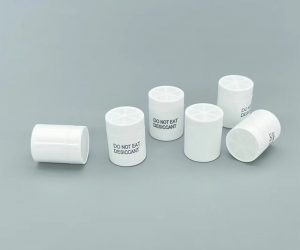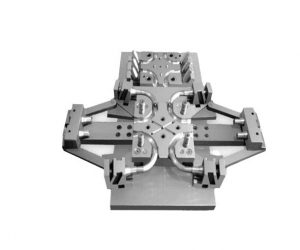The choice between cooperating with a foreign-owned mold factory or a private mold factory depends on many factors, and there is no unified answer that applies to all situations. These two types of factories have their own advantages and disadvantages, and whether they are suitable for you will depend on your specific needs and preferences.
Firstly, mold factories controlled by foreign capital usually have richer financial and technological resources. With strong capital support, these factories are able to invest in advanced equipment and technology, thereby improving production efficiency and product quality. In addition, foreign-funded mold factories usually have a wider market channel and customer network, which helps to expand sales and increase brand awareness.
However, cooperation with mold factories controlled by foreign capital may also face some challenges. Firstly, due to their large scale, foreign-owned mold factories may place greater emphasis on large-scale production and standardized processes, which may result in certain limitations in meeting personalized needs. Secondly, due to its global business strategy, foreign-owned mold factories may focus more on cost-effectiveness and profit margins, which may have a certain impact on the interests of their partners.
In contrast, private mold factories are usually more flexible and agile. Due to their relatively small scale, private mold factories can more easily adapt to changes in market demand and provide more personalized products and services. In addition, private mold factories usually focus more on working closely with customers, better understanding their needs, and providing customized solutions.
However, collaborating with private mold factories may also face some risks. Firstly, due to relatively limited financial and technological resources, private mold factories may have certain limitations in terms of production equipment and technology. Secondly, the market channels and customer network of private mold factories may be relatively narrow, which may limit the expansion of sales scale and the improvement of brand awareness.
In summary, choosing to cooperate with mold factories controlled by foreign capital or private mold factories requires comprehensive consideration of various factors. You should weigh the advantages and disadvantages of two types of factories and make the most suitable decision based on specific needs and preferences. Regardless of the type of factory cooperation chosen, it is necessary to establish a good cooperative relationship and engage in sufficient communication and negotiation to ensure the maximization of mutual interests.
Here are some key points to consider for each type:
Foreign Capital-Owned Mold Factory:
- Advanced Technology: Foreign capital-owned mold factories often have access to advanced technology and management practices due to the influence of their parent company. This can result in cutting-edge molds and streamlined processes.
- International Standards: Such factories may adhere to international quality and safety standards, making them suitable for global partnerships and projects with stringent requirements.
- Global Reach: Foreign capital-owned factories might have a broader global reach and experience in dealing with international clients and projects.
- Capital Investment: These factories may have higher capital investment capabilities, allowing them to invest in state-of-the-art equipment and research and development.
Private-Owned Mold Factory:
- Flexibility and Customization: Private-owned mold factories may offer greater flexibility in accommodating specific customer needs and providing customized solutions.
- Personalized Service: Smaller private-owned factories might offer more personalized and hands-on customer service, fostering stronger relationships with clients.
- Focus on Local Market: Some private-owned factories excel in understanding and serving the needs of the local market, making them ideal for regional partnerships and projects.
- Cost Competitiveness: Private-owned factories might have lower overhead costs, leading to competitive pricing for their services.
Ultimately, the key is to thoroughly evaluate each mold factory's capabilities, expertise, track record, and alignment with your project requirements. The factory's experience, reputation, quality assurance practices, delivery times, and customer service are essential considerations for successful cooperation. You may also consider visiting the factory, checking references, and engaging in detailed discussions to assess their suitability.
Keep in mind that the success of the cooperation depends on clear communication, mutual trust, and a shared commitment to quality and efficiency. Regardless of the ownership structure, choosing a mold factory with a strong track record, experienced technical personnel, and a dedication to customer satisfaction will be instrumental in achieving successful outcomes for your projects.
At present, there are many foreign, Taiwan, Hong Kong and private mold factories to choose from in the Pearl River Delta and Yangtze River Delta regions of China. The advantages and disadvantages of mold factories with various qualifications are as follows.
(1) Foreign mold factory
Foreign mold factories have standardized management, perfect processes, strong sense of service, and guaranteed quality and service. These characteristics also determine the high cost, which means that the cost of mold opening will be relatively high. If we focus on product quality and have strong financial strength, we can choose large-scale foreign mold factories. However, in the reality of the industry, generally large-scale foreign mold factories have fixed foreign customers, and rarely face domestic enterprises to receive orders. Even if it receives orders from domestic enterprises, the quotation is often in line with the international market. Many domestic finished product enterprises can not afford it. A set of precision molds is often hundreds of thousands or millions of yuan.
(2) Private mold factory
Most of the private mold factories were founded by the first batch of people who entered foreign enterprises to work and contact the mold industry after China's reform and opening up, which can be regarded as the rising stars in the mold industry. At present, there are a large number of such private mold factories in the Pearl River Delta and Yangtze River Delta of Chinese Mainland. Some of these mold factories have developed rapidly. Through years of development, they have reached a high level in hardware equipment, management process, design philosophy, business philosophy, quality awareness, etc., and constantly catch up with foreign technologies. Therefore, a number of domestic excellent precision mold enterprises have been born. These enterprises will have advantages over foreign, Taiwan and Hong Kong funded enterprises in mold prices and product prices, It often attracts the attention of many mold buyers.
When it comes to choosing a mold factory for cooperation, companies may wonder whether it is better to work with a foreign capital or private factory. Both types of factories have their advantages and disadvantages, and the decision ultimately depends on the specific needs and preferences of the company. In this article, we will discuss some of the factors that companies should consider when deciding which type of mold factory to cooperate with.
Foreign Capital Mold Factories
Foreign capital mold factories are owned and operated by foreign companies or investors. One of the main advantages of working with a foreign capital mold factory is that they may have access to advanced technology, equipment, and materials that are not available in the domestic market. This can result in higher quality molds and faster production times. Foreign capital mold factories may also have better quality control systems and more efficient production processes.
However, working with a foreign capital mold factory may come with some disadvantages. The cost of production may be higher due to the higher overhead costs associated with operating in a foreign country. Communication and language barriers may also pose a challenge, especially if there are different cultural norms and business practices.
Private Mold Factories
Private mold factories are owned and operated by individuals or small groups of investors. One of the main advantages of working with a private mold factory is that they may offer more personalized attention and flexible production processes. They may be more willing to work closely with the company to ensure that the molds meet their exact specifications.
However, private mold factories may also have some disadvantages. They may have limited resources, including technology, equipment, and materials. This can result in longer production times and lower quality molds. Quality control systems may also be less rigorous compared to larger factories.
Conclusion
In short, choosing a mold factory to cooperate with is like choosing a partner - multiple factors need to be considered, including the company's specific needs and preferences. Foreign mold factories are like luxury cars, equipped with high technology and quality control, but their prices are also heartbreaking like some luxury brands, and they may not be using the same language as you. Communication is like playing a puzzle; Private mold factories, on the other hand, are like small coffee shops around you. Although their service attitude is excellent, their resources are limited, and quality control can sometimes be like playing "house hopping". So, in the end, the company still needs to weigh carefully and choose the most suitable mold factory, just like choosing the right socks, which should be both comfortable and comfortable to fit, but not too expensive!

